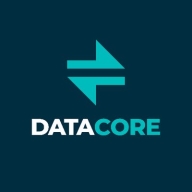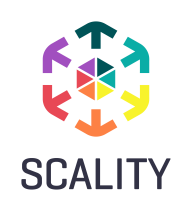


DataCore SANsymphony and Scality RING are contending products in the software-defined storage category. DataCore SANsymphony seems to have the upper hand due to its cost-effectiveness and robust support, despite Scality RING's advanced features.
Features: DataCore SANsymphony offers high availability, data protection, and efficient caching with parallel I/O processing. Scality RING provides object storage capabilities, scalability, and seamless multi-cloud integration for flexible storage solutions.
Room for Improvement: DataCore could enhance its scalability and support for large environments while refining its multi-cloud capabilities. Scality RING may need to streamline its deployment process and improve its cost-effectiveness for smaller businesses due to higher upfront expenses. Both products can benefit from optimizing integration simplicity.
Ease of Deployment and Customer Service: DataCore SANsymphony is known for easy installation and comprehensive customer support, providing minimal system disruption. Scality RING, despite its complex deployment due to scalability features, offers extensive training and technical guidance resources.
Pricing and ROI: DataCore SANsymphony is competitively priced, offering significant ROI by leveraging existing resources for storage scaling without major capital investment. Scality RING incurs higher initial costs but promises substantial ROI through enhanced performance in data-intensive settings, balancing immediate budget constraints with long-term scalability benefits.
It does not require much management once you set up correctly, so it saves time, allowing an admin to focus on other work.
I think RING's ability to maintain predictable costs while providing scalable storage solutions impacts our budget by allowing us to pay only for capacity.
For instance, while the cost per gig on a block storage platform may be $2, it's $1.50 for NAS, and only $0.50 for object storage, leading to a remarkable 75% reduction in costs by utilizing the Scality platform.
Scality RING has reduced our operating costs.
I would rate them an eight out of ten.
The support is done through email and is not that great, making it a very problematic area I've been dealing with for over four years.
They always help me quickly and with great knowledge, which is essential for central storage.
I would rate technical support from DataCore SANsymphony a 10.
The customer support is perfect.
I've always received responses within the required timeframe, the answers were technically relevant, and there was follow-up—people called us back to check if everything was okay and if the ticket could be closed.
Individuals such as Peter Mikolastik really make a difference by saying, 'Come on, what is the problem? I will help you,' rather than just brushing things off.
Technically, when we have major issues in P1, they are very responsive and we can't say that we don't get a response.
Pure Storage FlashBlade is scalable.
There are no limits to scalability, which is essential for central storage.
Upwards, I think, almost unlimited by what we can imagine.
I've never had issues with scalability.
We are relatively well informed about their new features, what will be implemented in future versions, and the scalability of the solution.
In case there is any issue with any blade, the data is moved to another.
It is a platform that is very stable at the customer level and does not generate incidents or blockages that you might encounter with standard storage solutions, where you can lose data.
I find that Scality RING is very stable because it allows for many maintenance operations without service loss.
There are factors that can cause Scality RING to become occasionally unavailable, but due to the system's resilience, it is capable of recovering or degrading gracefully.
Technical support definitely needs significant improvement.
Its configuration should be easier.
there should be improvements in how to get and filter logs
The area of DataCore SANsymphony that has room for improvement is the support.
DataCore SANsymphony can be improved with high availability as it offers synchronous mirroring between physical and separate sites to ensure business continuity and disaster recovery.
Encryption and data security need improvement. We don't have a solution for customers who need confidentiality.
They should prioritize quality over timeliness to minimize customer disruptions and not force customers into a cycle of fixes that interfere with daily work.
What we are currently missing and will be demanding in the new tender is an additional external backup of all data, ideally on a simple system, to safeguard against any severe local incidents so that we still have the data protected elsewhere.
The pricing of Pure Storage FlashBlade is expensive compared to other products I used from other companies in the past, but one benefit is that they have built-in ransomware protection.
They have made some improvements regarding the pricing, but it's still too expensive.
The cost changed from a perpetual license to a subscription model.
Fortunately, in terms of the license, we are able to expand the disks without having to adjust the license.
In the end, it always depends on how much you pay for it.
Regarding setup costs and licensing, our initial experience is somewhat dated now as we made a comprehensive purchase, including hardware, software, and system setup, which Scality handled at the time.
We can plug in many blades, and we can have data up to one terabyte.
The best features of Pure Storage FlashBlade include better throughput and better performance.
Customers can extend storage with flexibility, as one is not obligated to purchase hard disks or controllers from the same storage vendor.
DataCore SANsymphony's ability to enhance storage utilization is very good because it's agnostic and it can be deployed on every environment, which is perfect for my clients.
This flexibility and scalability have helped our organization in practice because it is important for us as it decouples the storage management software from the physical hardware, creating a software layer of intelligence.
When a server is lost, the data is still accessible.
It is even better stored when there is only one copy on a system and there is a second copy on an immutability system, which is almost equivalent to backing it up on tape and taking it offline, making it completely inaccessible.
Scality RING has influenced our approach to scaling in different dimensions by providing a cost-effective solution for the tremendous amount of data we generate every day for each customer.
| Product | Market Share (%) |
|---|---|
| DataCore SANsymphony | 7.2% |
| Scality RING | 3.9% |
| Pure Storage FlashBlade | 4.1% |
| Other | 84.8% |



| Company Size | Count |
|---|---|
| Small Business | 11 |
| Midsize Enterprise | 11 |
| Large Enterprise | 20 |
| Company Size | Count |
|---|---|
| Small Business | 36 |
| Midsize Enterprise | 12 |
| Large Enterprise | 21 |
| Company Size | Count |
|---|---|
| Small Business | 3 |
| Midsize Enterprise | 1 |
| Large Enterprise | 12 |
FlashBlade is the industry’s most advanced scale-out storage for unstructured data, powered by a modern, massively parallel architecture to consolidate complex data silos (like backup appliances and data lakes) and accelerate tomorrow’s discoveries and insights.
Experience peace of mind with DataCore SANsymphony, the ultimate software-defined storage solution alleviating storage management challenges. Say goodbye to the complexities of managing different storage tiers and disruptions with SANsymphony's block-level storage virtualization technology, empowering you to automate capacity provisioning and data placement across diverse storage environments including SAN, DAS, HCI, and JBOD. Break down silos, control data placement, meet business continuity objectives, boost performance, and seamlessly expand or refresh hardware with SANsymphony. Benefit from features like asynchronous replication for disaster recovery, minimizing data loss, accelerating application responsiveness, and integrating new technology non-disruptively. Trusted by industry leaders like NASA, Thorntons, Inc., and TUI Cruises, DataCore SANsymphony guarantees unparalleled flexibility, scalability, and reliability, ensuring uninterrupted data access and application availability while reducing storage costs and inefficiencies.
Scality RING is the scalable and resilient object storage solution designed for modern workloads, providing seamless data protection against evolving cyber threats.
Scality RING leverages S3 object storage to meet unpredictable demands with a patented MultiScale Architecture that offers limitless scalability across capacity, performance, and more. It delivers end-to-end cyber resilience with CORE5 for ransomware protection, while its cloud-style economics and intuitive management empower enterprises to accelerate AI initiatives and optimize cloud deployments. Its flexibility is ideal for service providers managing extensive data needs.
What are the key features of Scality RING?Scality RING is extensively implemented in backup solutions across industries, supporting platforms like Veeam and CommVault. It aids in storage expansion and management of large data volumes alongside multi-site architectures. While not leading in AI spaces due to performance constraints, there's potential with faster disk support. It's also used in archives, binary lakes, multimedia services, and AI data lakes.
We monitor all Software Defined Storage (SDS) reviews to prevent fraudulent reviews and keep review quality high. We do not post reviews by company employees or direct competitors. We validate each review for authenticity via cross-reference with LinkedIn, and personal follow-up with the reviewer when necessary.